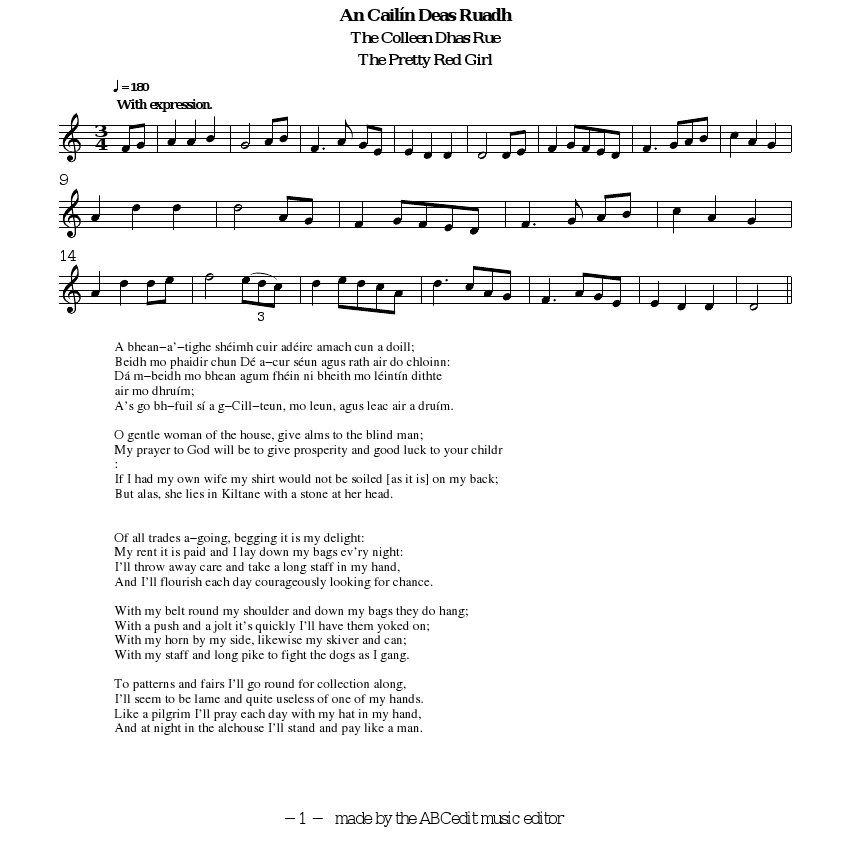
Since I happened to be in the area, in a manner of speaking, I couldn't miss an opportunity to do some research on a favourite if somewhat neglected, baroque composer. Turlough O'Carolan, whose name is much more well-known and respected in folk-music circles than among musicologists of the classical tradition, is widely held to have been the last of the true celtic bards: a musician and poet who made it his business to glorify in song the nobles who fed him, clothed him, paid physicians to attend him in sickness, and above all, revelled in his finely crafted praises or delighted in his cunning mockery of their rivals!

As usual, a tavern makes a good base of operations, and starting point for my enquiries. The first thing I learn from the landlord of the Cock as a result of asking about Mr.O'Carolan is that I should either make my services indispensable to some family of rank, or learn to brew the finest whiskey in all of Ireland. According to my landlord, Mr.Connelly, since his talents as a harper were recognized by Mrs.McDermott-Roe, Mr.O'Carolan has been greatly in demand at noble houses across the country, and while Mr.Connelly thinks he might be in County Clare as a guest of Lord Inchiquin he admits that the last news he heard of Mr.O'Carolan's whereabouts is more than two months old now.
Evenings in a tavern like this are always entertaining; there's a lot of animated conversation going on over by the snug next to the open hearth, and in the yard outside, two teams of three men each are competing in a game of skittles when Mr.Connelly himself summons me to the bar to meet Feargus Nolan, himself a musician of no small ability.
Mr.Nolan is a smallish fellow with long ginger sideburns, and sparkling blue eyes, wearing a heavy dark blue woolen coat with bright brass buttons, a large package wrapped in canvas standing beside him on the floor.
Mr.Nolan tells me that he has met, and played with Mr.O'Carolan, a most extraordinary fellow who could drink Saint Patrick himself under the table, and still pick a tune as delicately as a faerie, and such a fancy he has, for the most astonishing tales! He would almost as soon play a song for the telling of a tale of mystery and the fey folk as for another glass of whiskey.
I don't have to wait long before Mr.Nolan unwraps his package, placing the canvas neatly folded under his stool as he takes his small clarsach in his lap to play an air and variations on a popular song. And of course, he has a devoted crowd of "groupies" singing along in their native tongue.

In talking to the local people, there are many stories to be recorded, and I know that if I don't come back here, someone else will have to, if we are to ensure these tales are not lost. But a recurring theme, which I want to follow up for myself concerns the abduction and enslavement of those who survived the wars of pacification with England; taken from their homes and shipped overseas to work on plantations in English colonies. At first, it is easy to dismiss the stories as isolated incidents, but as the numbers mount the question begs to be answered: was Jonathan Swift's seemingly ironic proposal that the problems of famine and poverty in Ireland should be solved by making the Irish sell their offspring as a food crop really intended sarcastically?

References
For more information about Irish genealogy (but mainly for the beautiful spiral pattern included above)
Some must-see parts of Ireland
Don't miss Simon Chadwick's Early Harp page, Simon has also produced at least one CD of early harp music.


The written content of this work is licensed under a Creative Commons Attribution-Noncommercial-Share Alike 3.0 Unported License.
No comments:
Post a Comment